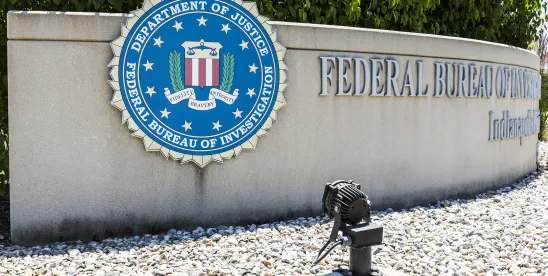Takeaways
- DOJ attorneys will use the False Claims Act to investigate and pursue claims against any federal funds recipient that knowingly violates federal civil rights laws.
- The DOJ team will include an attorney from each of the 93 U.S. Attorney’s Offices.
- All employers and organizations that receive federal funding should review their internal and external DEI-related programs and policies to assess potential risk.
U.S. Deputy Attorney General Todd Blanche issued a memorandum introducing the “Civil Rights Fraud Initiative” on May 19, 2025. The memorandum directs all Department of Justice (DOJ) attorneys to use the False Claims Act (FCA) to “investigate and, as appropriate, pursue claims against any recipient of federal funds that knowingly violates federal civil rights laws.”
The Initiative adds enforcement teeth to President Donald Trump’s Executive Order 14173, “Ending Illegal Discrimination and Restoring Merit-Based Opportunity,” issued on his first day in office.
Government Contractors Certification
EO 14173 requires federal government contractors to certify that they do not operate or maintain any diversity, equity, and inclusion (DEI) programs that violate applicable federal anti-discrimination laws. In addition, the EO directs federal agencies to include terms in every federal contract or grant award that requires government contractors to agree that compliance with applicable federal anti-discrimination laws is material to the government’s payment decisions. This provision in EO 14173 on the materiality of compliance was widely viewed as a precursor to the DOJ utilizing the FCA as a tool to pursue employers that maintain DEI programs and policies.
Entities Accepting Federal Funding
The DOJ initiative, “co-led by the Civil Division’s Fraud Section, which enforces the False Claims Act, and the Civil Rights Division, which enforces civil rights laws,” will target the “many corporations and schools” accepting federal funding that “continue to adhere to racist policies and preferences—albeit camouflaged with cosmetic changes that disguise their discriminatory nature.”
The memorandum identifies two examples where recipients of federal funds could run afoul of the FCA:
- A university accepting federal funds that “encourages antisemitism, refuses to protect Jewish students, allows men to intrude into women’s bathrooms, or requires women to compete against men in athletic competitions”; and
- Government contractors or other federal-funding recipients that “certify compliance with civil rights laws” while employing DEI programs “that assign benefits or burdens on race, ethnicity, or national origin.”
The Civil Rights Fraud Initiative team will include an assistant U.S. attorney from each of the 93 U.S. Attorney’s Offices, according to memorandum. The team will also “engage with the Criminal Division, as well as with other federal agencies that enforce civil rights requirements for federal funding recipients, … states attorneys general[,] and local law enforcement.”
Finally, the Civil Rights Fraud Initiative encourages private parties, like employees and outside third parties, to “aggressively” pursue FCA qui tam whistleblower suits. Qui tam actions allow whistleblowers to share in any monetary recovery by the government — up to 30 percent of the total amount recovered.
Implications for Recipients of Federal Funds
The Civil Rights Fraud Initiative makes clear that all recipients of federal funds, such as those in the healthcare and life sciences, defense, and education industries, should:
- Align their policies with federal anti-discrimination laws;
- Conduct thorough due diligence before certifying compliance with the government;
- Update their compliance programs; and
- Calculate legal risks stemming from ongoing DEI efforts.
The federal government now considers the absence of any “illegal DEI” programs or policies a material condition of payment of any federal funds.
Employers and organizations of all kinds — privately held, publicly traded, and especially federal contractors — should conduct a comprehensive attorney-client privileged review of their internal and external DEI-related programs and policies to assess potential risk.





 />i
/>i
